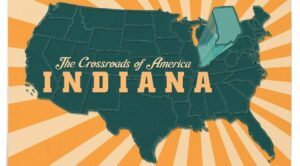 The Government of New Zealand has unveiled several proposed changes to the country’s new Racing Industry Bill and the piece of legislation is now expected to be turned into law with a 1-month delay from the initially planned deadline.
The Government of New Zealand has unveiled several proposed changes to the country’s new Racing Industry Bill and the piece of legislation is now expected to be turned into law with a 1-month delay from the initially planned deadline.
The bill was filed in December 2019 as the second part of a two-stage implementation process of the Racing Reform Act and was scheduled to come into force on July 1st, 2020. However, the coronavirus outbreak resulted in a delay of the procedures, as New Zealand’s lawmakers focused on responding to the new pandemic with adequate measures. Now, the Racing industry Transition Agency (RITA) shared that an opinion that the bill would be officially implemented a month later than originally planned – on August 1st.
When the new bill takes effect and is officially turned into law, the RITA will cease operation, as it is planned to be replaced by a new entity called Racing NZ. Now, the Agency has updated all interested stakeholders on proposed changes that are set to be brought to the piece of legislation, saying that the country’s Transport and Infrastructure Select Committee had highlighted more than 30 areas for amendments. Reportedly, the changes would be mostly focused on how official data is distributed and who will be the one leading the regulation and oversight.
The new Racing Industry Bill is expected to make significant changes in the country’s horse and greyhound racing industry by ensuring better oversight of the sector.
Racing NZ to Be Established as the Single Entity Managing the Sector
 As explained by the Racing Industry Transition Agency, the main direction and structure of the proposed bill is to remain the same as it was before the amendment proposals made by the Committee. Racing codes are expected to assume greater responsibilities associated with the development and promotion of their sport and their activity would no longer be coordinated by Racing NZ.
As explained by the Racing Industry Transition Agency, the main direction and structure of the proposed bill is to remain the same as it was before the amendment proposals made by the Committee. Racing codes are expected to assume greater responsibilities associated with the development and promotion of their sport and their activity would no longer be coordinated by Racing NZ.
The establishment of Racing NZ is one of the major proposed changes that were set to take place immediately after the bill is turned into law. The single entity will manage the three legal racing structures, with the new structure being responsible for guaranteeing compliance with the Racing Industry Bill. In addition, TAB NZ will no longer have the exclusive right to use the intellectual property of the racing industry. Previously the RITA and the codes have shared their concerns regarding the clause, explaining that it was too broad of a scope and risked centralising too much power with the TAB NZ.
Some of the proposed changes are aimed at making it easier for the racing industry to make content supply deals with overseas bookmakers, ensuring foreign gambling companies pay for using New Zealand racing products. As explained by the RITA, it is going to work on developing a coordinated plan under the authorities would operate with the revenue earned by such contracts.
- Author


